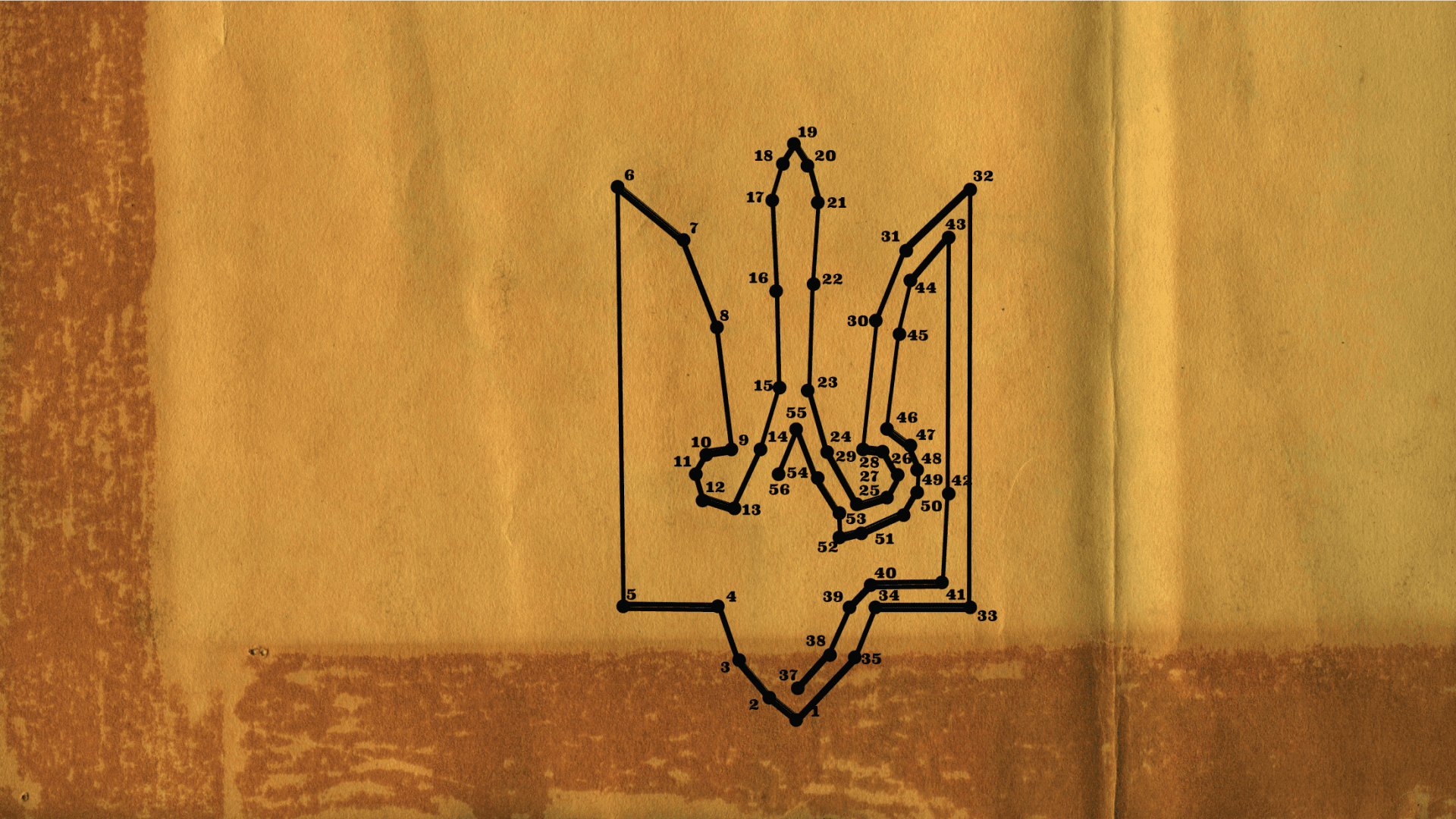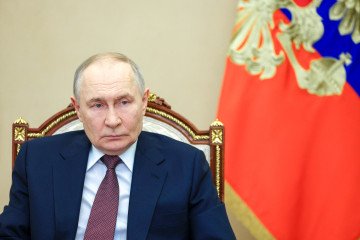- Category
- Anti-Fake
A Guide on How To Save Conversations About Ukraine That Go Wrong, Part 2

Your trusted guide when you find yourself confronted with one of these “mistakes” or “misconceptions” about Ukraine. Here’s how to navigate it and explain it.
After publishing “A Guide on How to Save Conversations About Ukraine”, we’re expanding on our previous guide with part two.
With everyday discussions often clouded by misinformation and misunderstandings, this guide will help you respond effectively to issues such as fear of escalation and faulty historical narratives. From addressing Putin’s nuclear threats to clarifying the role of Russian citizens in supporting their government’s aggression, here’s how you can handle these difficult conversations.
On fear of escalation/long-range weapons
Many believe Putin’s rhetoric that if the UK and the U.S. lift current restrictions on long-range weapons, things will escalate. A lot of this fear comes from the fact that Russia is a nuclear power, and no one wants a nuclear war. But the reality is that Putin uses this method of nuclear bluffing as a way to slow down aid to Ukraine.
Throughout the war, Western countries have hesitated to fully engage due to concerns over Putin’s threats of escalation. At first, they would only supply protective military gear like helmets. Then, there was the question of whether or not to supply Leopard Tanks and F16s. Now, the UK and the U.S. are discussing lifting restrictions on the use of long-range weapons….queue Russian nuclear blackmail.
Had all of these tools been available to Ukraine at the onset of the invasion, it is hard not to imagine what the landscape of the war might look like today or if there would even be one. American historian Timothy Snyder says Putin’s only real victory has been getting inside the heads of Americans and Europeans, and cautions them against taking the bait, “[Putin knows] perfectly well that if there were an intercontinental nuclear war—an exchange of ballistic missiles—he would be dead. He's not going to do that. And we know that, too. There's no reason why we should be more afraid than he should be.”
On “This War Doesn’t Affect Me”
For many, Russia's invasion of Ukraine feels like a world away, but in reality, it’s much closer than people think. In the middle east Russia is aligning with the likes of Iran, in the north both NATO and Russia conduct naval drills preparing for a ‘hypothetical’ standoff and in the south, Wagnerian forces are taking control of entire villages capitalizing on Africa’s natural resources whilst stirring violence among its citizens. Even in our very own backyards Russia has begun sowing the seeds of misinformation and meddling in internal affairs right down to the smallest Facebook troll. As a result, Russo-western relations have deteriorated to a level not seen since the Cold War, with no signs of improvement.
Many have equated the current geopolitical landscape to that of 1938 using the example of Czechoslovakia and Germany—the only difference being that Ukraine’s resistance is preventing things from escalating to the likes of 1940,41 or 42. “I think about how people in California, or in Ireland or in Sicily or whatever are just living their normal lives, like in 1938,” says American historian Timothy Snyder. “What we should say is Ukraine is doing this all by itself. They’re holding off something much worse.”
On “this is Putin’s war. Everyday Russian’s are not to blame”
This is another phrase you hear often. A January 2024 poll by the Levada Center—a Russian independent, nongovernmental polling organization—reported that over 80% of Russians expressed support for Putin’s actions in Ukraine. While there is some research to suggest that Russians may overstate support due to fear of repression, a separate poll that used indirect questioning as a means of bypassing this fear still found that 53% supported the invasion, reported RadioFreeEurope/RadioLiberty.
The unfortunate reality is that this is not the first time Russian citizens have sat idly by while their government committed atrocities. Since the collapse of the Soviet Union, Russia has been involved in countless acts of aggression, including the occupation of part of Moldova, two brutal wars in Chechnya, the invasion of Georgia, and its significant role in the Syrian war, where it backed dictator Bashar al-Assad. Despite these actions, a large portion of the Russian population continues to support Putin’s regime. At some point, accountability for these actions ought to be acknowledged.
On “the history thing”
“If you don't know history, you don't know how to be critical of someone else's story,” says Snyder. Unfortunately, many people in the West are unknowingly subscribing to Russia’s colonialist version of Ukraine’s past. This is not necessarily their fault; it's just a lack of knowledge.
“If anybody knows anything about Russia, they've probably read a textbook that has, again, a more subtle version of what Putin says,” says Snyder. Putin’s version is over-simplified and runs off of the concept that “Russia” began a thousand years ago because “someone called Vladimir got baptized.. and somehow nothing has changed since then,” Snyder explains. In truth, it’s really just not constructive to even engage in this type of “historical” conversation. The only relevant piece of information that should be referenced when discussing Russia’s invasion of Ukraine is the events that have taken place since 1991, when Ukraine’s borders were drawn post-USSR and it achieved renewed independence. Since then, Russia has made overt and covert attempts to violate internationally recognized borders and violate international law. End of story.
On victory/peace
“A Ukrainian victory is when Ukrainians believe that they've won,” says Snyder. “But maybe more importantly, it's when Russians believe that they have lost. Russia has to lose in such a way that it doesn't start another war.”
While many in the West call for an end to the war, it’s crucial to understand their own role in achieving that. Ukrainian President Zelenskyy has formulated a victory plan with military, political, diplomatic, and economic elements to help Ukraine negotiate with its aggressor. The plan includes NATO membership and the unrestricted use of long-range weapons to strike Russian military targets, as reported by the Associated Press.
For this to happen, Ukraine needs its partners’ support—like the ability to target Russia’s military airfields, home to the planes bombing Ukrainian cities.
The goal of the peace deal is to give Ukraine a strong bargaining hand. To do that, Ukraine must have negotiating items like the territory of the Kursk region, the threat of long-range weapons in its arsenal, and unwavering international backing. For Ukraine to accept any deal, it also needs security guarantees against future war—this is where NATO membership comes in. As history shows, Russia will persist in trying to seize Ukrainian territory unless a powerful force stands in its way.
-fca37bf6b0e73483220d55f0816978cf.jpeg)




-f88628fa403b11af0b72ec7b062ce954.jpeg)
-e5e2358f676d2926947b90a73136b91d.jpg)
-29a1a43aba23f9bb779a1ac8b98d2121.jpeg)